I attended a Relationship-Centered Schools summit last year, and it was fascinating to meet like-minded people who are passionate about helping youth and adults build positive relationships. I met many educators and mentors who are doing incredible work in their schools and communities by focusing on youth-adult relationships.
Relationship-Centered Schools supports districts, schools, community members, families, and students in building that strong web of supportive relationships that will create empowering and welcoming environments for everyone to be seen and heard. MENTOR
Here are some suggestions for establishing an equitable, relationship-centered classroom.
Understanding Students’ Experiences
It may require some time to intentionally learn about each student. Although initially it may be challenging, the benefits are tremendous. Understanding students goes far beyond the typical teacher-student relationship, especially when trying to learn about their lived experiences. Being receptive to your students’ lived experiences is essential if you want to build a strong mentoring-like relationship in your classroom and, eventually, across your entire school. It creates a new bonding experience based on respect and admiration for one another when you try to relate to your students. Additionally, it can also assist educators in coming up with fresh, creative approaches to reach students and foster an atmosphere that is more welcoming to all. You can establish an Equitable, Relationship-Centered Classroom that accepts all identities by learning about the real-world experiences of your students. When you are truly curious about your students and their interests, they will often open up more to you.
By creating a relationship-centered learning environment, you can amplify equity and empower students to explore future career paths.” Mentoring.org
Empowering Students through Student Voice
Most classrooms are full of students from diverse backgrounds and communities. In order to establish an Equitable, Relationship-Centered Classroom environment, it is crucial to provide a space where all students can feel proud of their identities and discuss common experiences.
Making sure your students feel heard is crucial to developing strong relationships with them. Having a voice increases students’ sense of accountability and commitment to their own learning. It also gives students the opportunity to become better advocates for how they learn.
“Students have a unique perspective on how high-level decisions impact the day-to-day life of the school, and their voices are critical to quality schoolwide SEL implementation and fostering equitable learning environments. By listening to students, schools can make informed decisions about the changes that will best support all learners.” CASEL
Implicit Biases Awareness
When working with youth, it is critical to be aware of any prejudices you may have. We all have unconscious biases, but how we project them matters. Being intentional about recognizing your own bias can be critical to creating a space for reflective learning. A reflective learning environment encourages students and educators to be more patient, compassionate, and self-accepting and enhances students’ critical thinking skills. Equitable Relationship-Centered Classrooms require lots of reflection in order to create meaningful connections with students.
The true power of culturally responsive teaching comes from being comfortable in your own skin because you are not a neutral party in the process. You can never take yourself out of the equation. Instead, you must commit to the journey. This means we each must do the “inside-out” work required: developing the right mindset, engaging in self-reflection, checking our implicit biases, practicing social-emotional awareness, and holding an inquiry stance regarding the impact of our interactions on students. (Hammond 53)
Important Vocabulary
Relationship-Centered Schools: Supporting districts, schools, community members, families, and students in building that strong web of supportive relationships that will create empowering and welcoming environments for everyone to be seen and heard.
Student Voice: The expression of values, opinions, beliefs, and perspectives of individuals and groups of students in a school and to instructional approaches and techniques that are based on student choices, interests, passions, and ambitions.
Implicit Bias: A form of bias that occurs automatically and unintentionally, that nevertheless affects judgments, decisions, and behaviors.
Reflective Learning: Developing students’ critical thinking skills by analyzing experiences to improve future performance.
7 Ways to Reduce Implicit Bias
- Stop: Take a minute to breathe and gather your thoughts.
- Think: Is what you’re about to say or do going to offend someone, or will it uphold the respect and dignity of others?
- Reply: Respond with the impact, words, or actions that will have a positive impact for people.
- Do Better: Apologize if you make a mistake. “I’m sorry. I understand what I said made you feel a particular way. I’m going to continue to do better so this doesn’t happen again.”
- Learn More: Do your own research before asking People of Color or marginalized groups to explain implicit bias or microaggressions. Take implicit bias training through NEA or your state association.
- Practice: Model the behaviors you want people to see.
- Find Allies: Look for people who promote equity and can help support your goals and mission.
“Schools and youth programs have been scaling standards-based approaches to keep students on track to graduation and drive test scores since the passage of No Child Left Behind. That, and other widespread reform efforts, always treated relationships — with educators, mentors, tutors and even peers — as inputs to development and learning. That means relationships can be inadvertently treated as one-offs, disposable and even at risk of automation. If relationships are instead treated as outcomes, we’ll start investing in institutional designs and intervention models through which relationships are deliberately nurtured and outlast one-time interventions.”
Julia Freeland Fisher, “Who You Know: Unlocking Innovations That Expand Students’ Networks“






